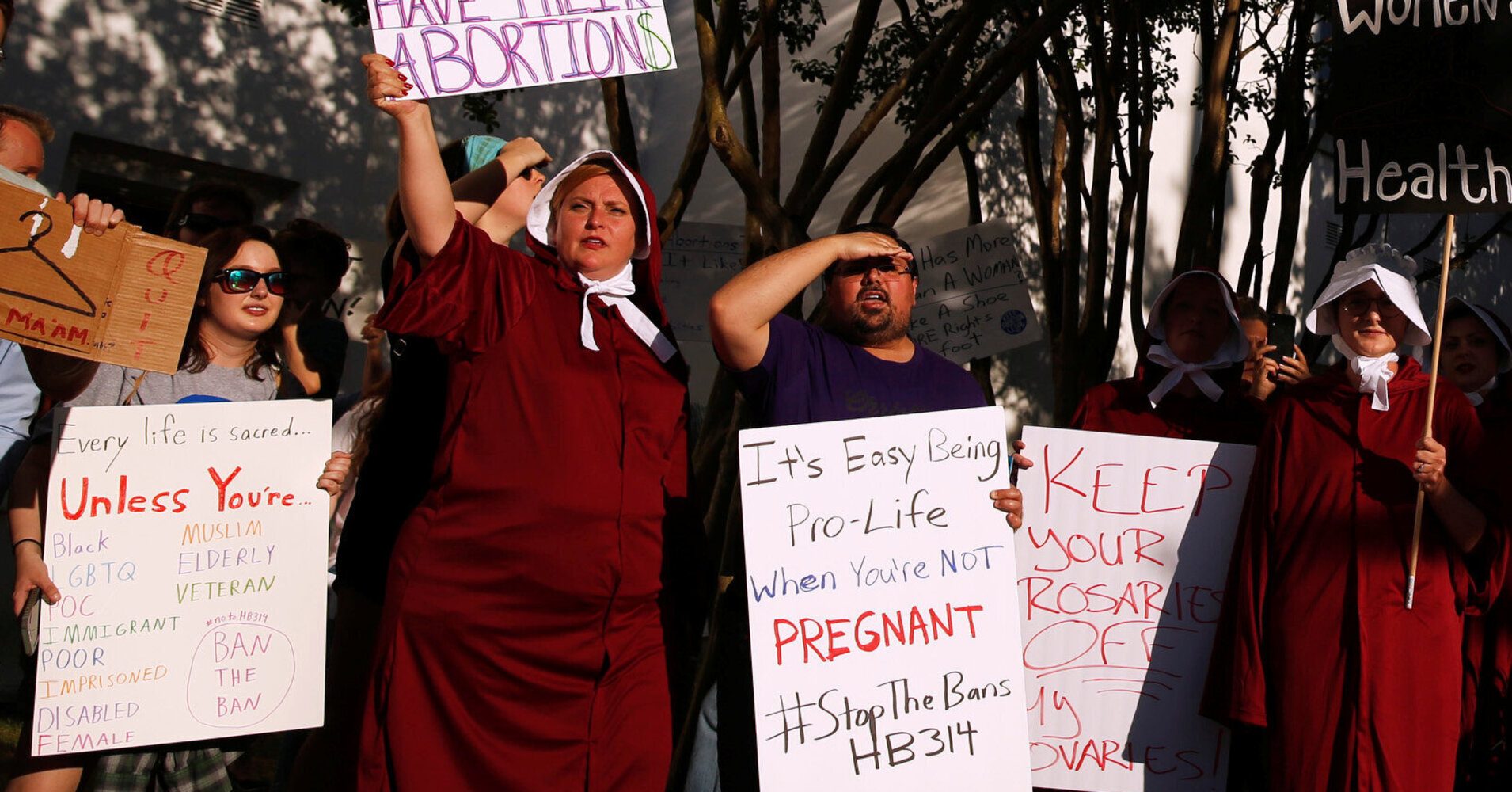[ad_1]

Even before Alabama’s overwhelmingly male-dominated legislature passed a law this week essentially outlawing abortions, the state was already a fairly terrible place for women ― especially women of color ― and mothers in particular.
Alabama is one of only two states with no equal pay laws protecting women from discrimination (the other is Mississippi). It has the fourth largest pay gap in the U.S., according to the National Partnership for Women & Families. Women working there full-time earn, on average, just 73 cents for every dollar a man makes, compared with the U.S. average of 80 cents on the dollar. For black women it’s 58 cents, versus 61 cents nationwide.
Many Alabama women don’t work full-time because they can’t afford, or lack access to, quality child care. Only 61 percent of women ages 25-64 are in the workforce ― the second lowest labor force participation rate in the country ― according to a report released this week. Nationwide, women’s labor force participation in that age group is 71 percent.
It’s no coincidence that Alabama has passed a draconian abortion bill, which Gov. Kay Ivey (R) signed into law Wednesday evening. Governments that harshly restrict women’s reproductive rights typically do little to protect women’s rights in the workplace or at home.
“It’s a trend we see nationally and globally,” said Jessica Mason, a senior policy analyst at the National Partnership for Women & Families. She pointed out that unlike other states, Alabama offers no additional protections in the workplace for women beyond federal law when it comes to sexual harassment, a strong minimum wage, paid leave, sick leave or health care. “The state is definitely, on a number of measures, worse than the rest of the country,” she said.
The situation is particularly grim for mothers. Nearly half of all single women with children in Alabama experience poverty, according to a report this week from the Women’s Fund of Greater Birmingham, a local advocacy group. In the U.S., about a quarter of families headed by women are in poverty, according to statistics from the National Partnership.
Working mothers in Alabama who earn less than $30,000 a year are spending about 40 percent of their income on child care.
And that child care can be, well, frightening. Only this year did Alabama even attempt to regulate providers in the state, partly because children were getting sick and even dying, said Melanie Bridgeforth, president and CEO of the Women’s Fund of Greater Birmingham.
Bridgeforth wouldn’t talk about abortion. “You can’t eat the whole elephant,” she said, emphasizing that her group is focused on child care, equal pay and educational opportunities for women in the state. “I know Alabama gets a bad rep on a lot of things,” she said. “But we are here fighting.”
When women lack economic power, there are all sorts of consequences ― it becomes harder to leave abusive relationships, for example. Alabama is one of the highest-ranking states in the nation for domestic violence, according to a 2015 report.
Obtaining political power is also more difficult for economically disadvantaged people. Perhaps nowhere was that more clear than in the Alabama legislature this week, where male legislators were giving each other fist bumps after passing a law that wouldn’t even allow abortions for victims of rape or incest.
Alabama’s Senate and House of Representatives have a combined 140 members, but only 22 of them, or 15.7%, are women. The state Senate has 35 members, 31 of whom are men. None of the four female senators are Republicans. Alabama ranks among the bottom five states in the country in terms of women’s legislative representation.
“Last night there were three women in the room,” Abbey Crain, a local reporter for Reckon Alabama, said of Tuesday’s Senate vote. “Like a lot of places in America, the people who are allowed to thrive are rich white men.” (Crain noted that one of the sponsors of the abortion bill is a woman.)
Every vote for the bill in the state Senate came from a white man.
Even women who are against abortion in Alabama think the latest piece of legislation goes too far, according to Crain, who’s been closely covering the fight over the bill. She is currently reporting on a story about the state’s high infant mortality and maternal mortality rates.
State Rep. Adline Clarke (D) is one of the 18 women ― seven Republicans, 11 Democrats ― in the Alabama House. She spent Wednesday trying to pass a bill on equal pay. Clarke told HuffPost she’s got the support of all her female colleagues, but the key will be getting the male vote.
“There’s a Republican supermajority,” she said. “To get any bill passed you’ve got to have Republican support, and you’ve got to have support of the men.”
When asked about the connection between equal pay and the lack of reproductive rights in the state, Clarke declined to comment.
This story has been updated to reflect that the Alabama bill was signed into law on Wednesday.
Need help? In the U.S., call 1-800-799-SAFE (7233) for the National Domestic Violence Hotline.
REAL LIFE. REAL NEWS. REAL VOICES.
Help us tell more of the stories that matter from voices that too often remain unheard.
[ad_2]
Source link

